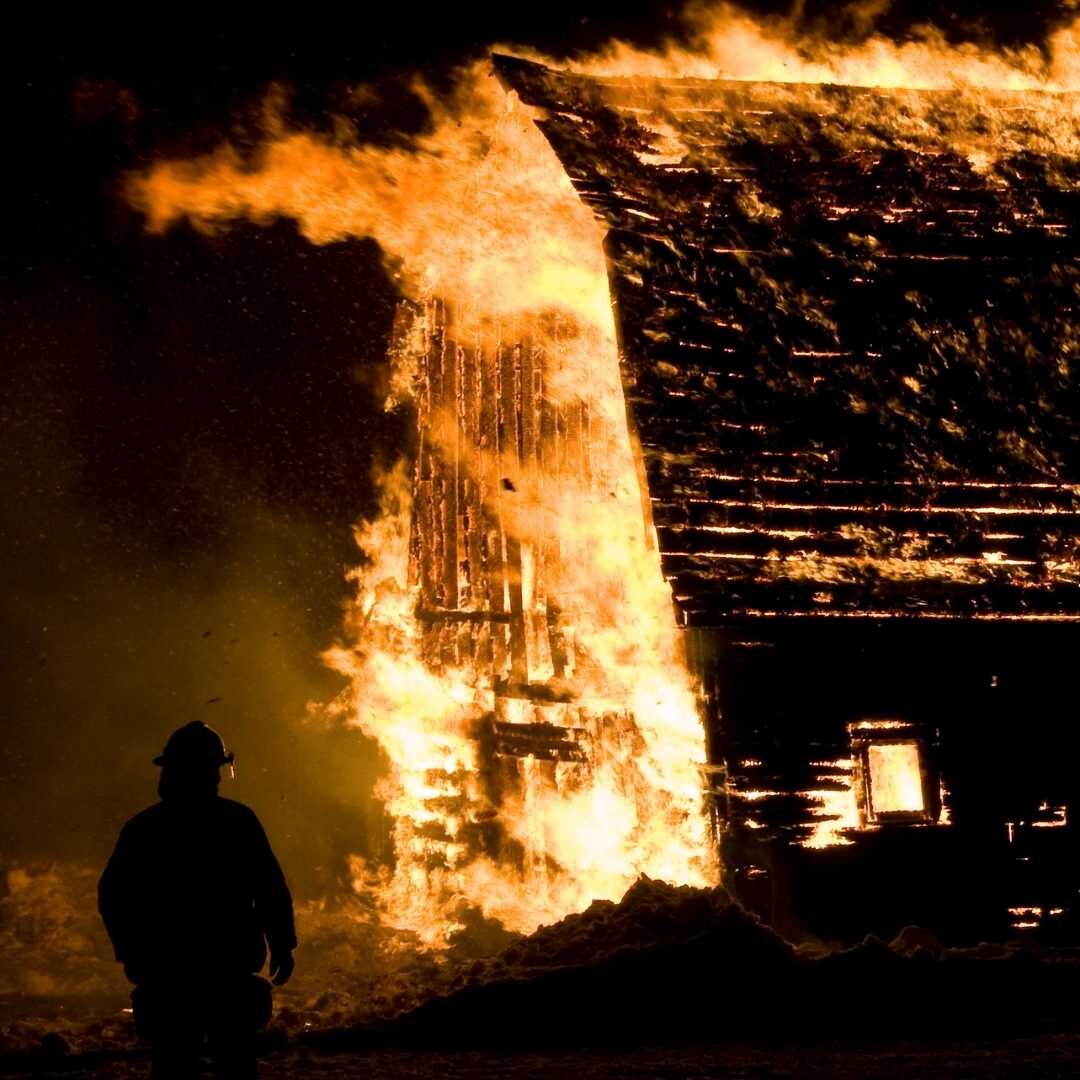On Sunday, January 6, at about 2:45 in the afternoon, I got a disturbing text from a friend. “We just saw something about a fire in your barn. Please let us know what we can do to help!” The words on my phone sent a chill down my spine. Our barn wasn’t on fire…was it? I actually looked out our dining room window at it to make sure. No, our barn wasn’t on fire, but whose?
It was Terry and Debbie Jones’ barn in Trenton. They lost 200 dairy cows and so much more. That day, Mr. and Mrs. Jones lived through one of a farmer’s worst nightmares.
I haven’t written about barn fires in this column mostly because I try to write about what I know, and thank heavens I haven’t lived through such tragedy. And I have to admit, I’m afraid to write about them. I feel a little like my grandmother who would whisper the word “cancer” if speaking of a recently diagnosed friend or relative. Don’t say it out loud. It’s just that terrible.
Barn fires are completely devastating. They wipe out generations of work. They erase blood, sweat and tears…and sometimes dreams. They are merciless and cold in their utter destruction. The clean-up borders on soul crushing; the smell and the smoldering hot spots linger in the air for what seems like an eternity. I know this much without having lost a barn; I can’t imagine living through it.
Our neighbor, Steve, and his family lost their barn to a fire back in 1968. He has a good memory in general, but the details he remembers about that night are forever etched in his brain. It was September, and the cows were all out on pasture. Only a few heifer calves were in the barn for the night. A banging noise roused his father from a sound sleep in his bed, and when he sat up, he could see light coming from the hay mow. He knew in an instant the barn was on fire. The fire trucks came straightaway, but nothing could be done to save the structure. Instead, the firefighters concentrated their efforts on saving the newly built milk house.
As the family stood and watched, with neighbors gathering for support, a terrifying moment came when the cows that had been on pasture came running for the barn. They had heard the commotion, smelled the smoke, saw the confusing flashes of light and were frightened. They wanted to be home! Family and friends rushed to cut them off, averting a yet greater tragedy.
Thankfully, the family was able to rebuild. They put up a larger barn and were able to be extra thoughtful on how they laid things out. And fortunately, no one was hurt. Steve and his family still farm there today.
When I was in middle school, the barn of one of my classmates burned down. It was the early ‘80s and dairy was in a free-fall. People came from miles around to see it; the road was just one long line of cars. That family lost every one of their cows; the panicked animals refused to leave the barn and posed a terrible danger to the rescuers trying to help them. My classmate’s family eventually rebuilt, but not to milk cows. They decided to raise horses instead.
Every time I hear of a barn fire, I want to know exactly how it started. Maybe I’m ticking items off a mental checklist in an attempt to ensure we’re doing everything “right”. Of course, fires can start from any number of sources. A big culprit is damp hay, grain or shavings. When hay is baled too wet (above 20-25% moisture content), it begins to mold. Since hay has such great insulating properties, the building chemical reactions can create real heat. The hot pockets eventually reach air and get fuel from the oxygen, creating a very dangerous fire. Faulty wiring* or an electrical short in a tractor parked in the barn can arc or smolder, and create a flame. A carelessly tossed cigarette butt and heat lamps are infamous for starting fires, as is a rare lightning strike. Animals are infrequently the cause, despite the false narrative that Mrs. O’Leary’s cow started the Great Chicago Fire. (Interestingly enough, that was a tall tale easily spread far and wide due to anti-immigrant sentiment against the Irish.)
I haven’t been able to get the barn fire in Trenton off my mind, in part because we share the same last name. I’ve had at least half a dozen people ask me if that was our barn in the news. But more importantly, the Joneses lived through one of a farmer’s worst nightmares. Every farmer I’ve spoken to in the last few weeks admitted to thinking about the Joneses, how they’re doing, and how their hearts go out to the family. The story has a surprise happy ending, though: the Trenton Joneses had applied—and were accepted!—to become part of the Tug Hill Tomorrow Land Trust, a trust that provides money for the farm while keeping the land in agriculture for perpetuity. My hope and prayer is that they enjoy success as farmers once again, with no more nightmares!
*Farmers: NYCAMH, the same people that will help you get a roll-bar for your tractor, can help you upgrade unsafe electric in your barn. Call them today and ask about the Jim May Safety Fund: 800-343-7527.
